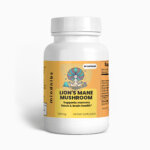
“Organic Coffee vs Regular Coffee: Which Should You Choose?”
Whether you’re a coffee connoisseur or just someone who enjoys a good cup of joe in the morning, you’ve probably been faced with the age-old question: should you choose organic coffee or regular coffee? With so many options available, it can be difficult to know which one is the better choice for your taste buds and your health. In this article, we’ll explore the differences between organic and regular coffee and help you make an informed decision about which one is right for you. While both types of coffee have their pros and cons, we firmly believe that organic coffee is the superior choice – and we’ll tell you why.
1. Understanding the difference between organic and regular coffee
When it comes to coffee, there’s a lot of information out there to digest. One of the most significant debates in the coffee industry concerns the difference between organic and regular coffee. To help you navigate through this intricacy, we’ve created a comprehensive guide to understanding the differences and benefits of each option.
Regular coffee refers to conventional coffee, which can be grown and harvested with the use of synthetic fertilizers, pesticides, and other chemical additives. In contrast, organic coffee is grown without synthetic fertilizers and pesticides, using natural or biodegradable alternatives instead.
- Organic coffee is healthier for you and the environment.
- Organic coffee has a more robust and distinct flavor.
- Organic coffee provides a sustainable and ethical source of caffeine.
Clearly, there are many benefits to choosing organic coffee. While regular coffee may seem more convenient or affordable, organic is the healthier and more sustainable choice. With a wide variety of roasts and blends available, organic coffee doesn’t need to compromise on taste. So next time you grab a cup of coffee, consider choosing organic, and taste the difference for yourself.

2. The benefits of organic coffee for your health
What is organic coffee?
Organic coffee is grown without the use of synthetic fertilizers, pesticides, and other harmful chemicals. Instead, farmers rely on natural methods to protect and nourish the coffee plants. They use compost, crop rotation, and other sustainable practices to ensure that the coffee beans are of the highest quality and free of any harmful residue.
- Rich in antioxidants: Organic coffee is high in antioxidants, which can help prevent and repair damage to your cells caused by free radicals. Antioxidants have also been linked to a reduced risk of chronic diseases, such as heart disease and cancer.
- Better for digestion: Since organic coffee is grown without the use of synthetic fertilizers, it is less likely to contain harmful chemicals that can irritate your digestive system. This can lead to better digestion and fewer digestive problems.
- Lower in caffeine: Organic coffee is often grown at higher altitudes, which means it naturally contains less caffeine than conventionally grown coffee. This can be beneficial for those who are sensitive to caffeine or who want to reduce their overall caffeine intake.
Why choose organic coffee
Choosing organic coffee supports sustainable farming practices and helps protect the environment from harmful chemicals. It also ensures that the coffee you drink is free of any harmful residue and rich in antioxidants and other beneficial compounds. Plus, organic coffee often has a richer flavor and aroma, making it a delicious choice for coffee lovers.

3. How organic coffee is produced and why it’s more sustainable
Organic coffee is grown using practices that prioritize the health of the soil, ecosystems, and farmers. These practices include crop diversification, crop rotation, and the use of natural fertilizers and pest control methods. It’s a more sustainable option because it supports biodiversity, reduces carbon emissions and helps conserve resources.
The production of organic coffee typically involves minimal use of synthetic inputs such as fertilizers and pesticides. Instead, it relies on natural processes and cycles to create healthy and sustainable coffee crops. This means that the soil remains healthy for future generations, and the coffee tastes better since it’s grown in balance with nature.
Organic coffee benefits farmers in that they’re not exposed to toxic chemicals, enhancing their health and the health of their families. Additionally, by adopting organic farming practices, farmers can reduce their dependence on costly chemicals and, therefore, improve their financial stability. By choosing to buy organic coffee, you’re supporting a more sustainable and equitable coffee production process that is better for both the environment and farmers.
4. The environmental impact of regular coffee production
The production of regular coffee has a significant impact on the environment, especially in terms of deforestation and water usage. Here’s a look at some of the environmental issues associated with regular coffee production:
- Deforestation: Regular coffee production relies heavily on vast areas of land to cultivate crops, which often leads to deforestation. This has a major impact on the ecosystem, as entire habitats are destroyed to make way for coffee plantations. This also contributes to climate change, as trees absorb carbon dioxide, which is a greenhouse gas that contributes to global warming.
- Water usage: The production of regular coffee requires a lot of water, which can put a strain on local water resources. In some regions, this has led to water scarcity and droughts, which can have severe consequences not just for the environment, but for local communities as well.
- Chemical pollution: In order to produce high yields of coffee, many growers use pesticides and other chemicals that can pollute the environment. These chemicals can also harm wildlife and local communities, leading to health problems and environmental degradation.
Given these environmental concerns, it’s important to consider the impact of regular coffee production on the environment when deciding what kind of coffee to consume. By choosing sustainable and ethical coffee options, we can support environmental stewardship and help minimize the impact of our coffee consumption on the planet.

5. The potential risks of consuming regular coffee
Regular coffee consumption may not be the best choice for some individuals. Here are potential risks to consider:
- Insomnia: Caffeine can disrupt sleep patterns and make it difficult to fall asleep or stay asleep.
- Dehydration: Coffee is a mild diuretic and can cause dehydration if consumed in excess without adequate water intake.
- Anxiety: Caffeine can cause an increase in heart rate and blood pressure, leading to feelings of anxiety or jitters.
Other potential risks include stomach upset, headaches, and increased risk of acid reflux. It’s important to note that individual tolerance to caffeine varies and some people may be more sensitive to its effects than others.
If you do choose to consume coffee, moderation is key. Consider starting with a small amount and gradually increasing to see how your body reacts. Also, be aware of your overall caffeine intake from other sources such as tea, soda, and chocolate.
6. Making the switch to organic coffee: what to look for
Organic coffee is gradually becoming a popular choice amongst coffee lovers. It is produced without synthetic pesticides and fertilizers, making it better for the environment and our health. While making a switch to organic coffee, there are a few things to look out for.
Firstly, check for the certification label. Organic coffee should have a certification label from regulatory bodies such as USDA, Fair Trade, Rainforest Alliance, or UTZ. These certifications guarantee that the coffee was grown, processed, and distributed adhering to specific organic standards. Such certifications also ensure that farmers receive fair prices for their produce.
Secondly, source your coffee from reputable brands. Choose brands committed to sustainable and ethical practices. Look out for brands that work closely with farmers directly, pay them fair wages, and provide them with improved infrastructure and resources. These brands are focused on reducing their carbon footprint and contributing to the well-being of farmers and their communities.
Lastly, look for coffee that has been roasted locally and recently. Freshly roasted coffee is better in taste and quality, and it assures that the coffee you are drinking is not going stale. Local roasters are often more transparent about their coffee sourcing and roasting techniques, so don’t be afraid to ask them questions or read their packaging labels.
In conclusion, organic coffee is not only environmentally friendly, but it is also more sustainable and better in taste. By choosing organic coffee with certification labels, reputable brands, and locally roasted coffee, you are not only making a healthy choice but also supporting ethical and sustainable practices. So, let’s make the switch to organic coffee and enjoy our daily cup of coffee with a clear conscience.
7. Conclusion: why organic coffee is the better choice for you and the planet
After much research, it is clear that organic coffee is the superior choice for both individual health and the health of the planet. Here are just a few of the reasons why:
- Less exposure to harmful chemicals: Organic coffee is grown without the use of synthetic pesticides and fertilizers, which can not only harm the environment but also leave residues on the coffee beans that can be harmful to human health.
- Better for the planet: Organic farming practices are more sustainable and environmentally friendly, helping to preserve biodiversity and promote soil health.
- Higher quality coffee: Organic coffee is often of a higher quality than conventionally grown coffee, as it is grown with more care and attention to detail.
In addition to these benefits, choosing organic coffee also supports farmers who use sustainable practices and promotes fair labor practices in the coffee industry. While organic coffee may be slightly more expensive than conventional coffee, the benefits to both your health and the planet make it a worthwhile investment.
So next time you’re at the grocery store or ordering coffee at your favorite café, consider choosing organic. By making a small change like this, we can make a big impact on both our health and the environment.
No matter which coffee you choose, organic or regular, the most important thing is that you enjoy the flavor and its benefits. After all, that perfect cup of coffee starts with an informed decision. So, take the time to understand your preferences and make a choice that suits your unique taste and needs.

























